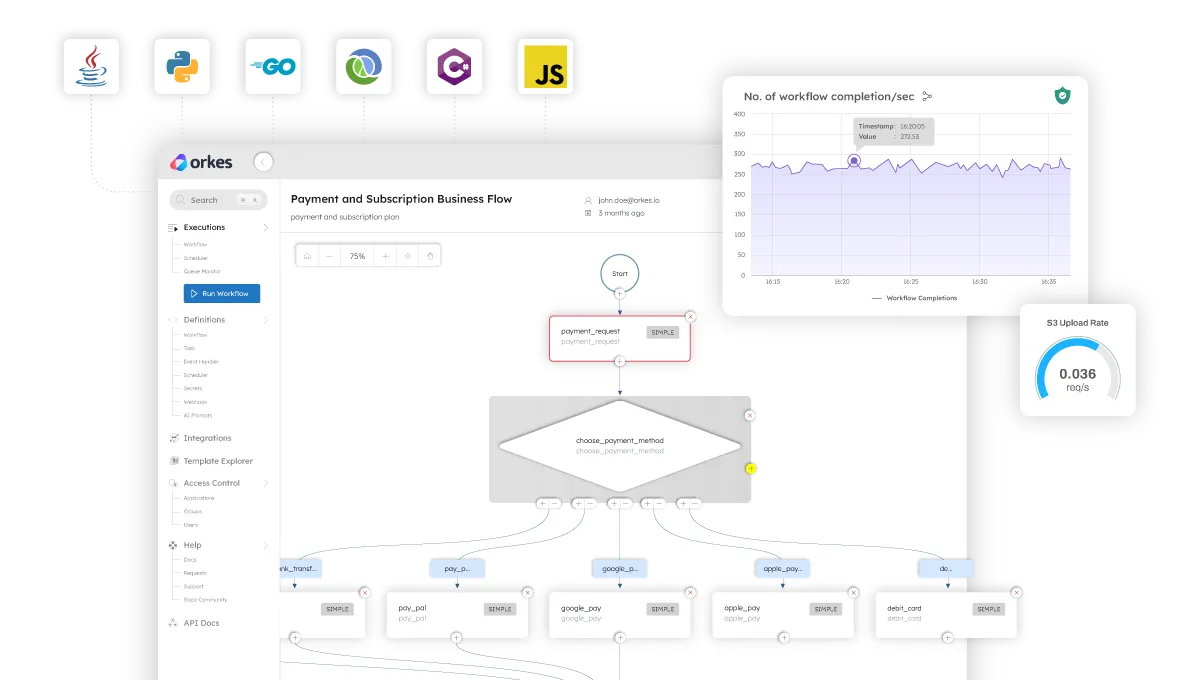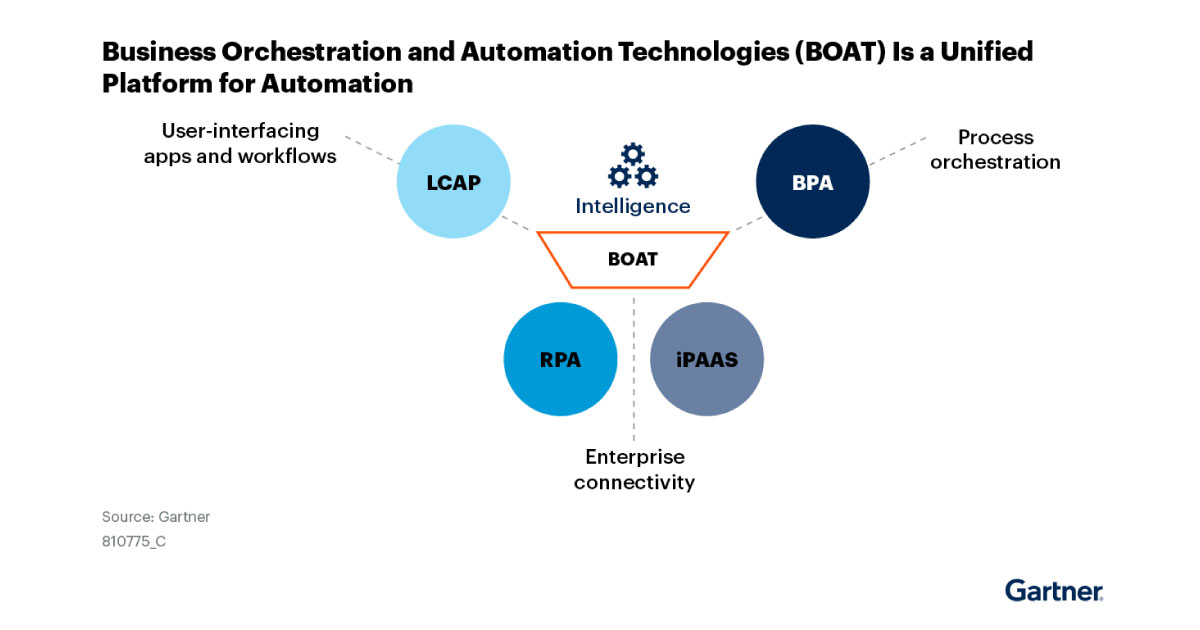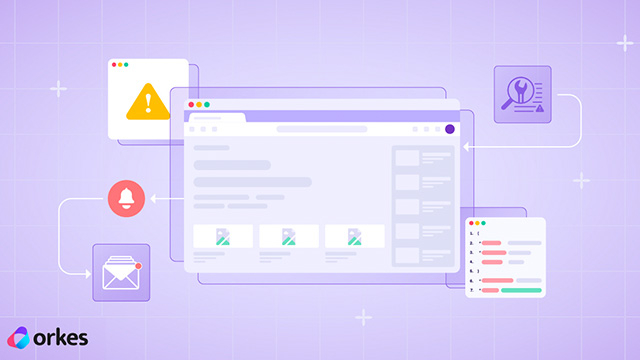The Future of Business Automation: How BOAT and Orkes are Transforming Enterprise Workflows
The evolution of business process automation has led enterprises to seek unified platforms that ensure reliability, scalability, and efficiency. Gartner’s concept of Business Orchestration and Automation Technology (BOAT) is gaining significant traction, consolidating disparate automation tools into a single, cohesive platform. Companies leveraging BOAT offerings, particularly through Orkes and Conductor, are reaping the benefits of a seamless automation strategy that enhances operational agility.
Start building with Orkes today

The evolution of business process automation has led enterprises to seek unified platforms that ensure reliability, scalability, and efficiency. Gartner’s concept of Business Orchestration and Automation Technology (BOAT) is gaining significant traction, consolidating disparate automation tools into a single, cohesive platform. Companies leveraging BOAT offerings, particularly through Orkes and Conductor, are reaping the benefits of a seamless automation strategy that enhances operational agility.
BOAT: A Unified Approach to Automation
BOAT represents the convergence of multiple automation technologies, including Robotic Process Automation (RPA), Business Process Automation (BPA), Low-Code Application Platforms (LCAP), and Integration Platform as a Service (iPaaS). This shift towards unified orchestration addresses the inefficiencies of fragmented automation solutions, reducing manual interventions and minimizing maintenance overhead

Organizations that have historically struggled with disconnected automation solutions now have a viable path toward a single orchestration layer that integrates various workflows, ensuring consistency and resilience. With thousands of companies adopting BOAT, it is evident that this approach is setting a new standard for enterprise automation
Gartner® Quick Answer: Beyond RPA, BPA, and Low Code – The Future Is BOAT
Reliability as the Cornerstone of BOAT
One of the key advantages of BOAT platforms is reliability. Unlike traditional automation approaches that rely on a patchwork of technologies, BOAT ensures seamless execution of end-to-end workflows. This reduces system downtime, improves data consistency, and enhances process efficiency, making it an essential component for businesses operating at scale.
Enterprises adopting BOAT have reported improved resilience against system failures, as automation orchestrated within a unified platform is less prone to errors caused by API mismatches or integration gaps.
Orkes and Conductor: Built for Scale and Reliability
At the heart of this transformation is Orkes, a company built on the foundation of Conductor—one of the most scalable and resilient orchestration engines in the world. Originally developed within Netflix Engineering to manage microservices workflows, Conductor has evolved into a powerhouse for business process automation, now widely adopted across industries such as finance, healthcare, and e-commerce.
With Orkes' cloud-native Unified Application Platform (UAP), businesses can design, deploy, and scale automated workflows with ease. The platform provides built-in reliability, scalability, and high availability, ensuring that critical business processes run without disruption.
Why Enterprises are Choosing Orkes
- Scalability: Supports large-scale workflows across global enterprises.
- Flexibility: Integrates with various automation tools, legacy systems, and modern cloud services.
- Cost Efficiency: Reduces long-term automation costs by consolidating disparate automation technologies into a single framework.
- Enterprise Adoption: Thousands of companies have already integrated Orkes and Conductor into their automation strategies, leveraging its battle-tested reliability.
As businesses continue to evolve in a digital-first world, the demand for reliable, scalable, and unified automation solutions is at an all-time high. BOAT is leading this transformation, providing enterprises with the ability to automate complex processes at scale with unparalleled reliability. Organizations that embrace this shift will not only optimize operations but also gain a competitive edge in an increasingly automated landscape.











